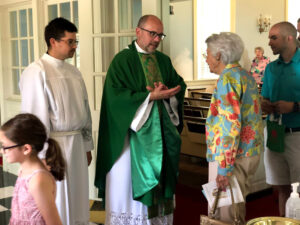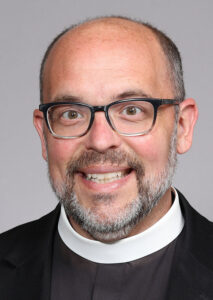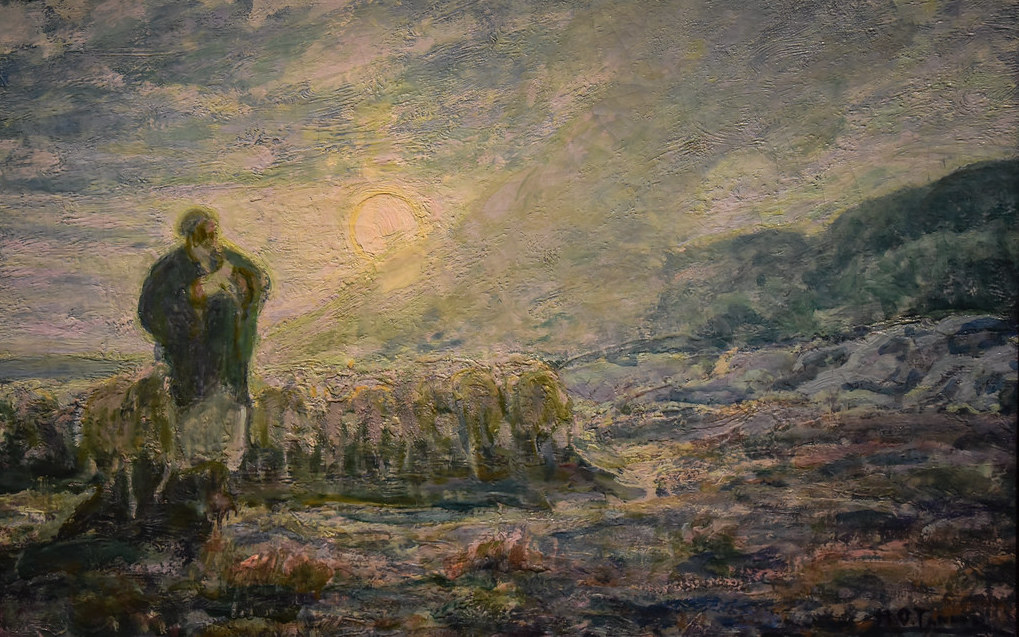
Now I understand Lionel Richie. “Easy like Sunday morning.” While serving in the parish, Sunday mornings were busy, and they gave birth to more activity as conversations with members would prompt follow-up visits. Sunday mornings are far more relaxed now. Christmas, too, was a far more relaxed pace than what I have known in the past.
Of course, a pastor’s duties go far beyond Sunday morning. My vicarage supervisor told me that he did not care to be called “preacher” because it boiled down his calling to a fifteen-minute sermon on Sunday mornings. While the sermon affords the pastor the highest number of ears at a given moment, he is blessed to have the ear of his members and others seven days a week through Bible study and visitation.
Six months ago, I shifted from two decades of parish ministry to service as seminary professor. The transition has prompted a bit of reflection. On one hand, I rejoice in the continuity between parish ministry and seminary professorship. While serving in the parish, my counsel to seminary field workers, vicars, and others was that parish ministry is a three-legged stool. If each leg is strong, then the stool is stable. The legs of preaching, teaching, and visitation were held together by the rungs of administrative-related matters. Those rungs were there to serve what really carried the weight of pastoral ministry – preaching, teaching, and visitation. (Administrative responsibilities is a point of continuity between parish and seminary as well – both require plenty of meetings for the sake of good order in service to the proper work given in parish and seminary.)
In that description, preaching is shorthand for all that is bound up in the congregation’s life of worship, not only delivering sermons, but also officiating at services and all the preparation work. Being a seminary professor allows me to continue to preach and officiate at services. I am blessed to serve in seminary chapel, and I have filled in for pastors who were ill or traveling. I am not in pulpit and chancel nearly as much as I was previously, but there is continuity. Aside from pastoral duties, there is the far more crucial continuity of receiving Christ in His means of grace. One of the greatest blessings of life at the seminary is ordering our time with daily chapel.
Far more of my time is now given to teaching. While in the parish, there was Sunday morning Bible study, Bible studies throughout the week, catechism instruction for youth and adults, and more. At the seminary, I spend even more time engaged in teaching and the necessary preparation. Teaching at the seminary is different with far more time given to preparing and grading exams and assignments. And while serving as parish pastor, I did not have members parsing Hebrew verbs. Yet the rhythm of the week is driven by the classroom and the ongoing immersion in the word of the Lord. That was and is a blessing.
Visitation is the part of parish ministry that I miss the most. From homebound to hospitalized to absentees to the distressed to the rejoicing, I invested more time and energy into visitation than anything else while in the parish. And all that visitation paid huge dividends by strengthening my preaching and teaching. I knew to whom I was speaking in sermon and Bible study so I could be far more effective in preaching and teaching. Likewise, they knew me all the better so they could hear what I was saying even more clearly. That didn’t happen overnight but was the result of a purposeful plan to become acquainted with members, visitors, and anyone else I could meet. No wonder I now sense a void.
Seminary life by nature does not afford the sustained visitation that lasts decades. Seminarians matriculate and graduate (and also are gone for a year of vicarage before graduation). Your roster of students is different from one semester to the next. Rather than being an excuse for not building relationships, this is reason to be intentional in visiting students. Coffee and conversation following chapel is means to meet students whom you haven’t had in class and to engage personally with those whom you have had in class. Planned social events on campus offer more opportunity. Formation lab (a group of students are assigned to a given professor throughout their seminary days) gives weekly interaction between professor and students to build not only the habitus of a pastor-theologian but also the bonds of brotherhood.
These brief reflections upon the transition from pastorate to professorship lead to a simple conclusion. The Lord created us not to live solitary lives but engaged face-to-face with one another. The Lord redeemed us by dwelling among us, not separate from us. The Lord sets us in His Church so that we live as a body, not disparate members. And when He comes again, we will see Him face to face.
We are made for, redeemed by, sanctified into, and will be resurrected to community with Christ at the center. Parish and seminary reflect that beautiful reality a bit differently, yet both reflect it well.
Kevin Golden



Leave a Reply
You must be logged in to post a comment.